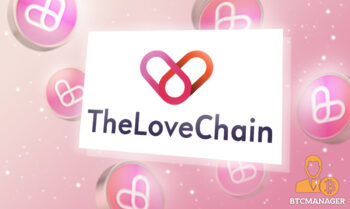
2018-8-15 17:47 |
If data is the new oil, Facebook is the modern version of the Exxon Valdez. Fake news is big business, and it’s easy for central actors to use and abuse their users. Corporate astroturfers will pay handsomely for a well-used Reddit account or social media mention. As for the uses of a verified Twitter handle, well, the less said, the better.
Unsurprisingly, several media giants have made moves to cash in on cryptocurrency while remaining centralized entities. Telegram and Kik held this years’ hottest ICOs, but their projects are still far from actualization.
Facebook is keeping its cards close, but the resignation of one of its executives from the Coinbase board has prompted speculation that the social media giant is planning a blockchain, or even a cryptocurrency, of its own.
While centralized media companies continue to eye the crypto-space, several initiatives have already started building platforms —without corporate control. From a crypto-Twitter to a crypto-Medium, here are some of the leading community-based social media platforms.
MindsThe Minds social network first came to attention last year, when the company became Twitter’s most eccentric–and least likely–competitor. Since then, the platform has breached a million users, migrated to Ethereum, and within hours became the biggest DApp on the blockchain. Although the numbers have since slipped, it’s still the closest thing to mass adoption in a world of cryptokitties and Ponzi games.
The minds behind Minds attribute their success to the censorship-resistant qualities of the platform. “Minds owes its success on the mainnet today to its million-plus users, influencers, and creators,” the company said in a press release, “many of whom joined in June after Vietnam’s new cybersecurity laws allowing the government uninhibited access to user data on social networks like Facebook and Google.”
That refusal made it a hit in Southeast Asia, where freedom of expression is sometimes a luxury rather than a right. It has also provided homes for viewpoints far outside the mainstream, in what CEO Bill Ottman described to Crypto Briefing as “niche network effects.”
The company began distributing its ERC-20 token earlier this week. In addition to incentivizing posts and participation, the token is also used to promote content or reward development.
MemoMemo is one of the niftier projects in the Bitcoin Cash ecosystem. In many ways, it recalls the scrappy do-it-ourselves ethic of Bitcoin’s infancy: instead of a billion-dollar crowdsale or a high-powered development team, Memo was created as a hobby project by a pair of bored developers.
The result is something a bit like Twitter—except its messages can’t be censored or deleted, and remain visible to anyone as long as the blockchain is being mined. The service is not free, but since Bitcoin Cash is still running empty blocks, it would take a few thousand posts before the bill reached a penny.
There’s only one problem with the Memo Cash system—it’s impossible just to try it. It’s free to read other people’s messages, but posting on memo cash requires paying those tiny per-character transaction fees. Although those costs are measured in satoshis (and the price of BCH is dropping by the day) it still means that new users can’t experiment with the system without either trading a few pennies for crypto or finding a faucet. Neither of those is actually hard, but the entry barriers are high to put off the casual user.
SolaAnother points-incentivized blockchain system, this project resembles a marriage between Instagram and Artificial Intelligence.
After several years as a centralized application, the founders moved the app to the blockchain and changed the name to Sola, for Social Layer. That might not be the most euphonious name, but it’s a lot better than the original monicker: Plague.
Sola’s biggest innovation is doing away with friends and following lists. Instead, it “spreads information like a viral disease,” the company says. “Each post is distributed by an algorithm to users who are likely to enjoy that content, and each of them is given an opportunity to reshare it.”
Not entirely sure that a ‘social disease’ will do down as well as Facebook, but it’s a startling thought.
SteemitDan Larimer gets a lot of heat, but EOS’ predecessor is everything a crypto platform should be. Using and posting to Steemit is simple, intuitive, and unlike Memo, involves minimal cost-of-entry. If you didn’t know any better, you’d never guess it involved a cryptocurrency.
Steemit is a bit like a marriage between Medium and Reddit, where each post and upvote is rewarded with a minute amount of cryptocurrency. High-quality content providers can leverage their followers, both to promote other content and to gain Steem points.
But it’s not a get-rich-quick scheme so much as a token-based points system. Since Steem is highly inflationary, there’s no point in hoarding or speculating with the currency—instead, the only real use of the token is to spend it in the ways it was intended. There’s also a stablecoin, Steem dollars, which can be used as a shelter against inflation.
…and more to come
So far we’ve only covered platforms that are already available for public use. There are also many other social media platforms, either rolling off the assembly lines or still in the design phase.
It’s hard to predict how network effects will come in to play; most of these projects are more likely to become a decentralized MySpace than decentralized Facebook. But in an economy where user data is one of the biggest commodities, it’s about time that users started taking a cut of their own.
The author has investments in Bitcoin, Bitcoin Cash, Ethereum and other cryptocurrencies.
The post 5 Decentralized Social Media Sites To Help #DeleteFacebook appeared first on Crypto Briefing.
Similar to Notcoin - Blum - Airdrops In 2024
onG.social (ONG) на Currencies.ru
|
|

























